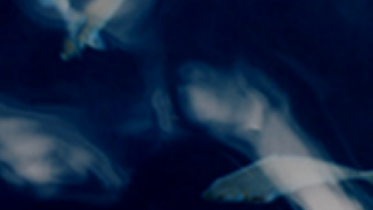World Cup: is it a registered trademark?
- 23 November 2022
- Articles
What is the size of the passion of Brazilians for football? Attempts have been made to measure the size of this passion and according to a survey[1], 65% of Brazilians consume content about football. It would be fair to say that soccer is part of the national culture, and, in a way, the way Brazilians put themselves or are perceived in the world. But if football shakes the lives of Brazilians with its local championships and disputes of the beloved teams when it comes to the World Cup, the impact multiplies and its effects touch not only football lovers, arousing a feeling of the nation in the search to assert itself as the best football in the world. For this year’s event, 3 million tickets were sold, with Brazilians among the ten nationalities that most assured their presence in the stadiums[2].
The men’s football World Cup is undoubtedly one of the largest sporting events on the planet, and this year, it is estimated that the television and streaming audience, together, will reach an impressive 5 billion viewers[3]. In this context, the arrival of the tournament influences commercial practices, causing products and services to be advertised and framed with colors, language, and presentation that emanate the festive atmosphere of the moment. Individuals and legal entities aim to retain and prospect customers, create engagement in their social networks, and, obviously, profit. In this way, one could say that the World Cup is a great party for industry, commerce, and services if it were not a detail: this party has an owner. Therefore, caution is needed to integrate the festive climate, particularly concerning the protection of intellectual property rights.
Starting with the name of the event, “Copa do Mundo” (the Portuguese for World Cup) is a registered trademark in Brazil, owned by the Fédération Internationale de Football Association (FIFA). Accordingly, the right to exclusive use of the trademark is assured to FIFA, based on Brazilian law, including, but not limited to, the Industrial Property Law (LPI, Law No. 9.279, of May 14, 1996). Exclusive use means that third parties, not authorized by the trademark owner, are prevented from using the name “Copa do Mundo”.
In what is understood by the right of exclusive use of the name and trademark “Copa do Mundo”, it is worth pointing out that the fact that a manufacturer or shopkeeper acts with activities outside the scope of sports, does not mean that he may use the said term because he is not a competitor of the trademark holder. It should be noted that this prohibition of use (and registration as a trademark) by unauthorized third parties lies, among other legal grounds, in the fact that names that designate officially or officially recognized sporting events are supported by the Industrial Property Law. In addition, this protection to the name of the sporting event occurs unrestrictedly (art. 124, XIII, LPI), to reach all products and services. Examples of unsuccessful trademark registration attempts, by a third party not authorized by the event promoter, are “SALGADINHOS DE MILHO KICOPA DO MUNDO”, “PIPOCAS COPA DO MUNDO” and “SALGADINHOS COPA DO MUNDO AMANTEIGADO” available in the database of the Trademark Office, namely, the Brazilian National Institute of Industrial Property (INPI).
In addition to the trademark “Copa do Mundo” (World Cup), there are other elements linked to the event that also find legal protection. Emblems, slogans, mascots, logos, and images are examples of distinctive signs or features that should not be used by unauthorized third parties. In this regard, FIFA publicly makes some Intellectual Property guidelines available on its website[4]. Those who intend to make use of the theme of the football event in their commercial practices should bear in mind that these FIFA guidelines are not exhaustive; furthermore, it is recommended that the possible commercial and promotional actions (or otherwise) be exercised by third parties not authorized by the entity that owns the event, be analyzed by a professional specialized in the matter.
It is also important to note that respect for intellectual property rights is not restricted to FIFA’s intangible assets, as football teams and other parties involved (such as official sponsors) have rights that should not be infringed by third parties. Many may remember, for example, the Caixa Econômica Federal (CEF) advertising campaign known as the Seleção dos Poupançudos” (“Selection of the Savings”) during the period close to the 2010 World Cup. This campaign was condemned by CEF, by the Judiciary[5], so that Caixa would refrain from using the marks and signs of the Brazilian football team. In this context, it was understood that the campaign was a practice known as “ambush marketing”, that is, an opportunistic type of advertising, which is associated with an event, without the express authorization of the directors or holders of that event.
Unfortunately, the lack of knowledge about intellectual property rights causes many to engage in unlawful acts, not only civil but also criminal, which could have been easily avoided. In the case of trademark infringement, for example, Brazilian law provides for the possibility of crime when there is reproduction, without the authorization of the owner, in whole or in part, of a trademark, or imitation so that it can induce confusion in consumers. Not to mention other legal provisions applicable to the prohibition of piracy and the repression of unfair competition.
In summary, although the acceptable use of elements that evoke the world football tournament that will take place in 2022 is possible, it is necessary that all actions and practices in this regard are limited to a space that does not infringe third-party rights. Depending on the factual context, the conduct of the person, whether physical or legal, may be interpreted as prejudicial to the rights of FIFA or other parties contractually involved in the competition. Thus, professionals specialized in Intellectual Property Law can certainly contribute to the theme in order to provide the necessary legal support in business and commercial actions related, in a way, to the World Cup.
[1] https://gente.globo.com/infografico-o-potencial-da-copa-do-mundo-de-2022/ Accessed Nov. 16, 2022
[2] https://www.forbes.com/sites/bradadgate/2022/11/14/the-2022-fifa-mens-world-cup-by-the-numbers/?sh=af478312c25c] Accessed Nov. 16, 2022
[3] Idem
[4] https://digitalhub.fifa.com/m/6c082ee6ab7bc802/original/FIFA-World-Cup-Qatar-2022_IP-Guidelines_EN.pdf Accessed Nov. 16, 2022.
[5] Court action no. 08051848020104025101. 25th federal court of Rio de Janeiro








